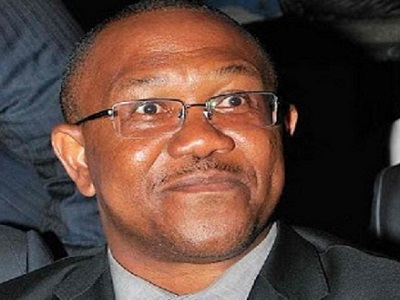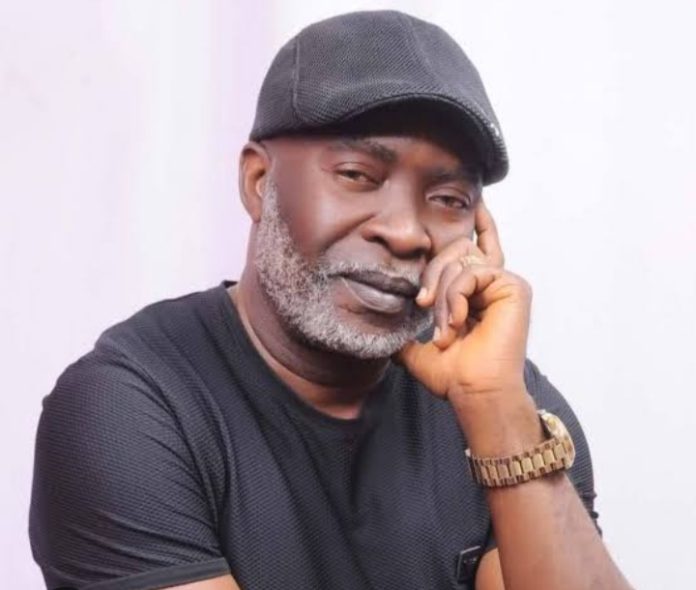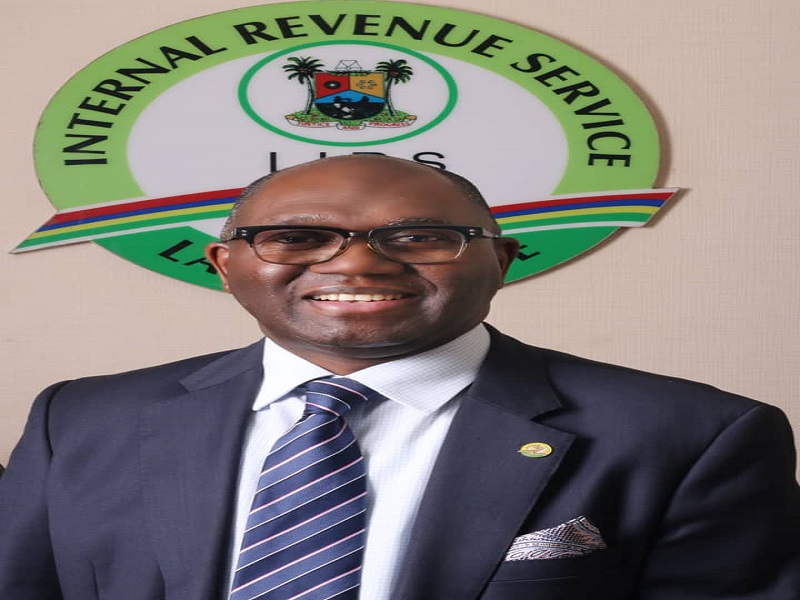News
WaveTek to Deliver Microsoft IT Academies in Anambra

WaveTek Nigeria Limited, a Microsoft certified partner is working closely with Microsoft, HP, and TD to deliver Microsoft IT Academy for the Anambra State government.
The Anambra State Government signed a school agreement with Microsoft Nigeria to provide the state’s schools with high quality and affordable ICT education.
The agreement will see WaveTek Nigeria Limited provide teachers in secondary schools across the State with ICT education, as well as the tools needed to effectively train students on Microsoft technologies, with a bid to enabling students develop self-reliance and then create a skilled community.
The sum of 2.65 billion Naira was provided by the state for the establishment of the ICT based learning programme. Also, About 25,000 laptops, 1,400 colour printers and other internet connectivity facilities were distributed in a bid to ensure the success of the Microsoft Information Technology Academy in the 450 Secondary Schools. The laptops are programmed with the national curriculum in all subjects.
The initiative was flagged off with the formal launch of Secondary Schools Microsoft Connectivity and Education Programme at the Women Development Centre, Awka.
Present at the signing ceremony were Anambra State legislature, Anambra executive council, traditional rulers and representatives of Microsoft and WaveTek.
Peter Obi, Governor of Anambra State was special guest at the occasion.
Speaking at the ceremony, Obi said, “The Anambra Government aims to create positive change in education in the State. We are determined to provide quality IT education to our youth, giving them the skills and knowledge to make them self-reliant and economically productive. Our partnership means we are fulfilling this vision”.
He said the establishment of the Microsoft Academy would help produce better generation of well-informed future leaders.
Ken Spann, managing director/CEO WaveTek Nigeria said Governor Obi understands that the future of Anambra and of all Nigeria is in the ICT development and mastery by the Youth of basic and advanced IT Skills.
“Anambra expands the State motto by becoming the “Light of The Nation” for ICT empowerment. This is the largest integration of Microsoft IT Academies, facilitated by WaveTek Nigeria, combined with laptops, teacher training, Internet Connectivity, WAEC JAMB study aids (provided by Indigenous Software firm,Cinfores) ever done in Nigeria and perhaps all of Africa. I am confident that other States will see benefits from Anambra’s efforts and commence even larger projects and pursue ICT Excellence and skills for their youth,” he stated.
Mrs. Uju Okeke, state commissioner for education, commended the governor for investing substantial funds and resources to improve the standard of education in schools and reiterated the benefits of the project to students.
Representatives of the communication technology partners, Microsoft Africa Marc Israel and HP Nigeria (Ime Umoh), spoke on the impact of the project which would bridge the gap in education, especially in the 21st century. They noted that Anambra was setting the pace for others.
The Microsoft IT Academy programme schools offer a world-class IT curriculum allowing students utilise the latest Microsoft technologies while learning about information technology and earning Microsoft technology certifications.
The programme also aims to link academic learning to job skills, thus allowing students to graduate with the IT skills that they will need to advance in their future careers with minimal adjustment in the working world and contributing positively to the global economy.
With the Microsoft IT Academies in Anambra State, participating students become Microsoft certified, benefitting from e-learning courses demonstrating their proficiency in ICT and equipping them with work-related IT skills.
WaveTek is an innovative global ICT solutions Provider to public and private segments, delivering exceptional values to customers, partners and shareholders.
News
Stanley Amandi, Nollywood Actor Arrested over Alleged Coup Plot against Tinubu

Stanley Amandi, veteran Nollywood actor and filmmaker, has been arrested by the Nigerian military over his alleged role in a foiled coup plot to overthrow President Bola Tinubu’s government, according to an exclusive report by Premium Times.

Stanley Amandi, Nollywood Actor
The filmmaker, also a former chairman of the Actors Guild of Nigeria (AGN) Enugu State chapter, was reportedly detained in September 2025 alongside several military officers accused of planning a violent overthrow, including potential assassinations of top officials, according to the newspaper’s sources.
Reports indicated that the coup plotters planned to wholesale assassination of top government officials including President Tinubu, Vice President Kashim Shettima, Senate President Godswill Akpabio, and Speaker of the House of Representatives Tajudeen Abbas, among others.
On Monday, the Defence Headquarters confirmed the plan to illegally oust the Tinubu administration, saying the indicted officers will be arraigned before military judicial panels.
In its statement, the Defence Headquarters said the investigation has been completed and forwarded to “appropriate superior authority in line with extant regulations.”
According to the military, the investigation was “comprehensive” and conducted in line with established procedures, examining “all circumstances surrounding the conduct of the affected personnel.”
The military disclosed that the findings identified “a number of the officers with allegations of plotting to overthrow the government,” describing such conduct as “inconsistent with the ethics, values and professional standards required of members of the Armed Forces of Nigeria.”
Mr Amandi has featured in many Nollywood movies and is known for his work as an actor, production manager and director.
His notable works include “The Album,” where he served as director; “Tiger King,” where he also served as director and produced in 2008; “Cornerstone,” produced in 2019; and “Once Upon a Dream,” in which he appeared as an actor in 2024.
Mr Amandi’s last Instagram post was on 19 September 2025, shortly before his arrest.
News
Firms Commit to Boost African Robotics Market

AfricAI and Micropolis Robotics have signed a multi-year exclusive distribution and deployment agreement, which marks one of the continent’s most significant robotics market entries.

Micropolis AI Robotics is a United Arab Emirates-based robotics manufacturer operating in autonomous systems, while AfricAI is a company building practical, revenue-driven artificial intelligence (AI) systems for African businesses, governments, and global partners operating in emerging markets.
According to the agreement, Micropolis Robotics named AfricAI as its exclusive continental partner, prohibiting direct sales, alternative distributors, and third-party agents from operating in the territory.
The partnership establishes AfricAI as the primary execution, localisation, and go-to-market platform for intelligent robotics in Africa’s industrial, security, logistics, and infrastructure sectors.
AfricAI said this exclusive mandate positions the company as the gateway for advanced autonomous systems entering African markets, ensuring regulatory compliance, local capacity building, and sovereign control over deployment frameworks.
The partnership, according to the two parties, moves beyond software- based AI into the realm of physical AI — intelligent machines capable of operating in complex, real-world African environments.
“This is not a collaboration, it is a market-shaping mandate,” said Fareed Aljawhari, CEO of Micropolis Robotics. “AfricAI now represents the exclusive gateway through which Micropolis technologies enter Africa. Their sovereign AI vision, operational reach, and regulatory fluency make them the only partner capable of executing at a continental scale.
Furthermore, the agreement enables AfricAI to integrate Micropolis’ autonomous robotics systems with AfricAI’s sovereign AI stack, resulting in AI-powered security and surveillance platforms, robotics-enabled logistics and port operations, industrial automation, smart infrastructure, and municipal robotics tailored to African operating conditions.
Initial deployments will commence in security, smart infrastructure, and logistics, with phased expansion across multiple African states as part of AfricAI’s broader continental AI, data, and intelligent infrastructure strategy.
The agreement also includes long-term performance-linked expansion rights, automatic renewals, and a defined localisation framework to support robotics deployment, workforce training, and skills transfer across Africa.
Prince Malik Ado-Ibrahim, executive chairman of AfricAI, said: “Africa does not need imported automation — it needs sovereign, context-aware intelligent systems. This exclusive mandate allows AfricAI to industrialise robotics deployment at scale while retaining control, compliance, and value creation on the continent.”
News
Subair: LIRS Won’t Raid Accounts – Unless You’ve Lost Every Court Battle

Lagos State Internal Revenue Service Executive Chairman Ayodele Subair Tuesday demolished online panic over alleged bank account raids, insisting the agency’s “Power of Substitution” targets only hardcore tax dodgers who have exhausted every appeal from tribunals to the Supreme Court over half a decade of disputes.

Ayodele Subair
Subair, speaking on Arise TV, shredded viral fears that LIRS would swoop on residents’ savings without warning, clarifying the mechanism under Section 60 of the Nigeria Tax Administration Act 2025 kicks in solely after assessments spark objections, reconciliations, demand notices, and a gruelling courtroom odyssey through High Court, Court of Appeal, and apex rulings.
The LIRS weekend notice had ignited fury by announcing enforcement via third parties – banks, employers, tenants, debtors – to claw back unpaid Personal Income Tax, Capital Gains Tax, Stamp Duties, and Withholding Tax from chronic defaulters holding funds or owing money to them, whether due now or accruing later.
Subair likened the process to a “long timeframe, not less than five years,” where recalcitrant bigwigs who stonewall every step become fair game, with LIRS directing agents like customers or partners to divert payments straight to the taxman in lawful settlement.
Far from arbitrary grabs, the chairman stressed it’s a final resort for “entirely recalcitrant” holdouts who ignore Notice of Refusal to Amend (NORA) and every olive branch, ensuring Lagos coffers snag rightful revenue fuelling the state’s bulging budget without shotgun raids on compliant payers.
As social media buzzes with defiance – “They can’t touch my account!” – Subair’s blueprint spotlights Nigeria’s tax evasion scourge starving subnationals of trillions yearly, with Lagos alone chasing billions in arrears amid federal revenue wars and economic headwinds squeezing the commercial capital’s 25 million souls.
Industry voices nod to the legality but plead for digital dashboards tracking disputes transparently, warning overzealous recovery could spook investors in Africa’s fintech and startup mecca already reeling from naira nosedives and grid glitches.
With LIRS poised to unleash the hammer on vetted violators, Subair’s clarion call aims to separate myth from muscle, bolstering Lagos’ IGR juggernaut that hit N815 billion last year while daring defaulters to test the full judicial gauntlet before crying foul.

 Telecom2 days ago
Telecom2 days agoPolice Bust ₦7.7bn Telecom Hack Gang, Seize 400 Laptops in Massive Fraud Swoop

 E-Financial3 days ago
E-Financial3 days agoPayPal Goes Live in Nigeria through Paga

 Broadcasting3 days ago
Broadcasting3 days agoNITDA, NBC Explore Strategic Collaboration on Digital Transformation, Media Regulation

 General News2 days ago
General News2 days agoNaira Smashes Through ₦1,400 Barrier in Official FX Rally

 General News2 days ago
General News2 days agoNCC Slaps ₦250,000 Fee on Trial Licences to Spur Telecom Innovation

 General News3 days ago
General News3 days agoFacebook Powers Connection, Creativity at African Creators Summit 2026

 E-Business3 days ago
E-Business3 days agoGold Hits Record $5,110/Ounce Amid Trump Tariff Threats, Geopolitical Fears

 Telecom3 days ago
Telecom3 days agoTikTok, Instagram Blamed in US Youth Suicide Lawsuit



























